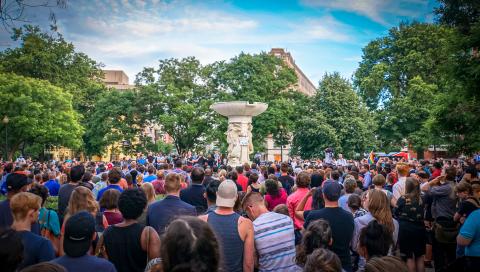Conspiracy theories on '15-minute cities' flourish

https://www.france24.com
The 15-minute city concept is credited to Carlos Moreno, a professor at Paris's Sorbonne University.
He told AFP he had received numerous personal insults over the idea.
"Never have there been proposals for restrictions -- on the contrary, this is a new opportunity: more choice, more services, more desire to thrive in one's neighbourhood," he said.
"Since the start of 2023, the concept of the 15-minute city has been subject to conspiracy theories, produced and shared by people already well known for spreading disinformation about Covid, the climate, vaccines and politics," he said.
"The only arguments they have are lies, manipulation and insults."
Public transport plans
Particular claims debunked by AFP Fact Check in recent weeks have targeted the English city of Oxford and Edmonton, Canada. Claims surfaced in various languages, including English, French and Portuguese.
"You can't leave a 15-minute city whenever you please ... The city walls or restrictions or zones or whatever you want to call them won't be used to keep others out, they'll be used to lock everyone in," says one man in a video viewed more than 59,000 times on Facebook, commenting on the Edmonton plan.
Sandeep Agrawal, director of the School of Urban and Regional Planning at the University of Alberta, said there were no grounds "whatsoever" for claiming the plan would implement such restrictions.
"The 15-minute plan intends to provide better connectivity to the rest of the city" by improving public transport links, he told AFP.
"District planning is an ongoing process which involves consultation with the public at various points of its development."
Among moderate critics of the concept, Toronto-based urban planning lecturer and author Jay Pitter has argued it cannot be transposed from European to North American cities and could worsen inequality by spurring gentrification.




























Comments
Disneyland For The Stupid
Comment
The concept is silly, and…
Comment